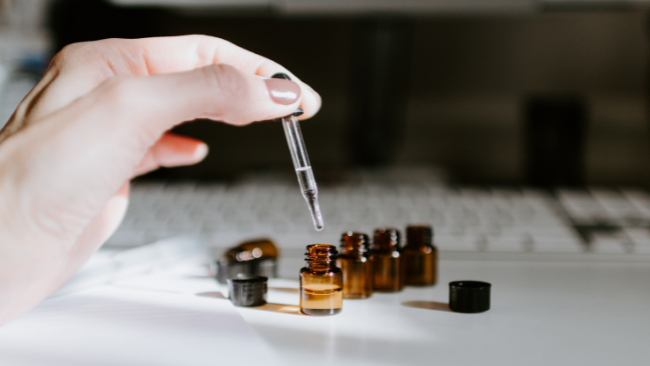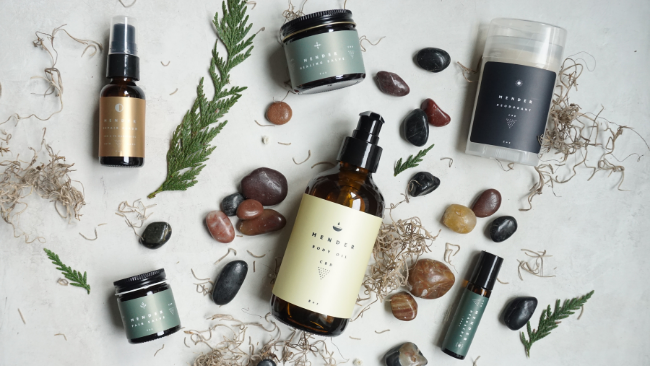How Can Essential Oils Help in Mental Health?

Many different methods are used for helping to manage mental health. For those looking for a holistic solution, a qualified aromatherapist can help guide you in the right direction, using essential oils for relaxation.
However, if you want to try something new on your own, here are some of the most common essential oils for anxiety.
Essential Oil For Anxiety
Bergamot
This essential oil has a very refreshing aroma that can help in uplifting your mood. Its smell is so appealing that it is often used as an ingredient in cologne and soap.
Bergamot can also be applied topically, but you need to dilute it with another carrier oil before applying it to your skin or diffusing it into the air. This is because bergamot essential oil tends to have strong physiological effects on both humans and animals. For instance, when exposed to sunlight at high levels, bergapten can cause photodermatitis in some individuals (which means that if you are sensitive to this, it should not be applied topically to your skin because of the possible adverse reaction).
Ylang Ylang
This essential oil has an exotic smell that can help you feel optimistic about life, especially in rough times. Also, if there is a lot of conflict in your environment (e.g., at home or work), ylang-ylang can help you get through it by improving social relationships.
Using this essential oil for anxiety goes, it's pretty simple since it doesn't tend to have those physiological effects like bergamot and peppermint do. However, make sure to dilute the oil before applying topically or diffusing it into the air.
Vetiver
This essential oil has a very earthy and grounding aroma that is highly recommended for people dealing with anxiety disorders. As far as using this oil goes, it's pretty easy to use since you can apply topically or diffuse it into the air without any problems. According to aromatherapists, vetiver is also believed to have specific properties that help reduce stress levels.

Essential Oils For Depression
There are many different ways to treat depression disorders, depending on what works best for you or your loved one. Some include diet changes (e.g., reducing caffeine intake), exercise, supplements, and essential oils.
Geranium
This essential oil has a floral aroma that can help improve one's mood. Aromatherapy research shows that people with depressive disorders frequently use this essential oil. Furthermore, clinical studies show that it can cause a reduction in anxiety levels while improving overall moods for sufferers of depression.
After diluting the geranium with carrier oils like jojoba to make a topical mixture, it can then be applied topically to any part of your body without any problems. It is also possible to add other essential oils to this mixture if needed or desired. Other popular essential oils like lavender and Roman chamomile can be used with geranium to increase the therapeutic effect.
Passion Flower
This essential oil has a very floral aroma that is believed to have sedative effects on the central nervous system. It's also commonly used by aromatherapists to help those who suffer from social anxiety, stress, and insomnia. This makes it perfect for those with depression disorders since it will improve overall moods while reducing feelings of anger, sadness, and frustration.
Rose
This essential oil is typically associated with love and affection. Roses are also believed to have specific properties that promote happiness, joy, and inner peace (which are all positives in helping deal with depression). Furthermore, aromatherapy research shows that this essential oil can help calm people down while improving their moods significantly for those suffering from depression or anxiety disorders.
Essential Oils For Insomnia:
Roman Chamomile
This essential oil has an aroma typically associated with peace, tranquility, and relaxation. Additionally, aromatherapy research shows that this essential oil can reduce the time it takes to fall asleep while increasing feelings of peace and happiness for people who have difficulty sleeping.
Lavender
This essential oil is one of the most popular essential oils in aromatherapy due to its sweet aroma doesn't overwhelm the senses like rose can sometimes. It's typically one of the first essential oils that people try when using aromatherapy. Furthermore, aromatherapy research shows that this essential oil is frequently used by people with sleep disorders like insomnia or restless leg syndrome (RLS).
References
Edge, J. (2003). A pilot study addresses aromatherapy massage's effect on mood, anxiety, and relaxation in adult mental health. Complementary Therapies in Nursing and Midwifery, 9(2), 90-97.
McCaffrey, R., Thomas, D. J., & Kinzelman, A. O. (2009). The effects of lavender and rosemary essential oils on test-taking anxiety among graduate nursing students. Holistic nursing practice, 23(2), 88-93.
Lizarraga‐Valderrama, L. R. (2021). Effects of essential oils on central nervous system: Focus on mental health. Phytotherapy Research, 35(2), 657-679.
'Zhong, Y., Zheng, Q., Hu, P., Huang, X., Yang, M., Ren, G., ... & Liu, S. (2019). Sedative and hypnotic effects of compound Anshen essential oil inhalation for insomnia. BMC complementary and alternative medicine, 19(1), 1-11.
Lemon, K. (2004). An assessment of treating depression and anxiety with aromatherapy. International journal of aromatherapy, 14(2), 63-69.
Tisserand, R. (1988). Essential oils as psychotherapeutic agents. In Perfumery (pp. 167-181). Springer, Dordrecht.
https://www.sleepfoundation.org/best-essential-oils-for-sleep
This article was kindly written and contributed by Ashlie Lopez.



